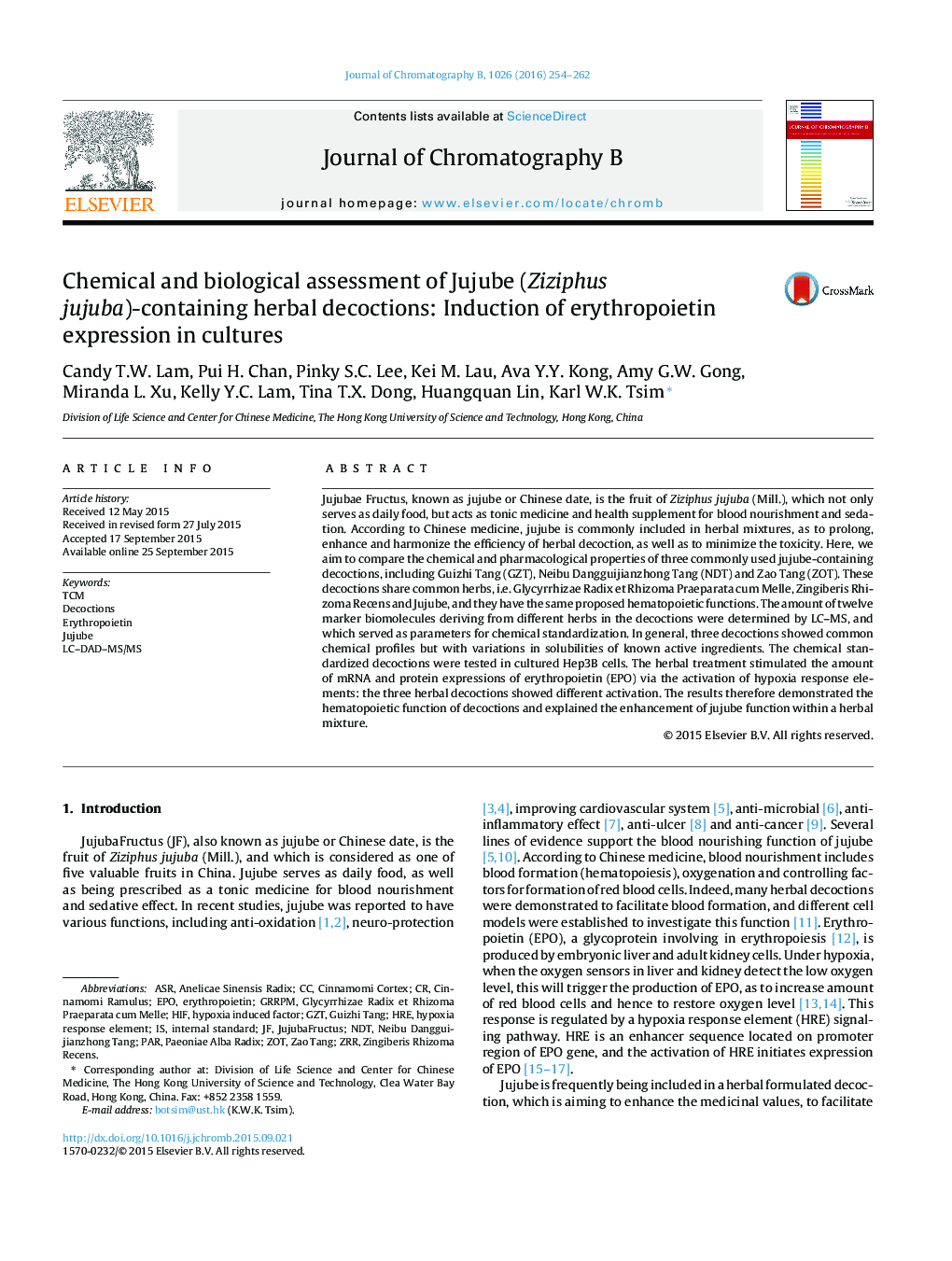| Article ID | Journal | Published Year | Pages | File Type |
|---|---|---|---|---|
| 1211797 | Journal of Chromatography B | 2016 | 9 Pages |
•Quality control of jujube-containing herbal decoctions.•The enhancement of extraction efficacy of chemicals in herbal decoctions.•Decoctions induce the mRNA and protein expression of erythropoietin.•Decoctions possess hematopoietic function.
Jujubae Fructus, known as jujube or Chinese date, is the fruit of Ziziphus jujuba (Mill.), which not only serves as daily food, but acts as tonic medicine and health supplement for blood nourishment and sedation. According to Chinese medicine, jujube is commonly included in herbal mixtures, as to prolong, enhance and harmonize the efficiency of herbal decoction, as well as to minimize the toxicity. Here, we aim to compare the chemical and pharmacological properties of three commonly used jujube-containing decoctions, including Guizhi Tang (GZT), Neibu Dangguijianzhong Tang (NDT) and Zao Tang (ZOT). These decoctions share common herbs, i.e. Glycyrrhizae Radix et Rhizoma Praeparata cum Melle, Zingiberis Rhizoma Recens and Jujube, and they have the same proposed hematopoietic functions. The amount of twelve marker biomolecules deriving from different herbs in the decoctions were determined by LC–MS, and which served as parameters for chemical standardization. In general, three decoctions showed common chemical profiles but with variations in solubilities of known active ingredients. The chemical standardized decoctions were tested in cultured Hep3B cells. The herbal treatment stimulated the amount of mRNA and protein expressions of erythropoietin (EPO) via the activation of hypoxia response elements: the three herbal decoctions showed different activation. The results therefore demonstrated the hematopoietic function of decoctions and explained the enhancement of jujube function within a herbal mixture.
